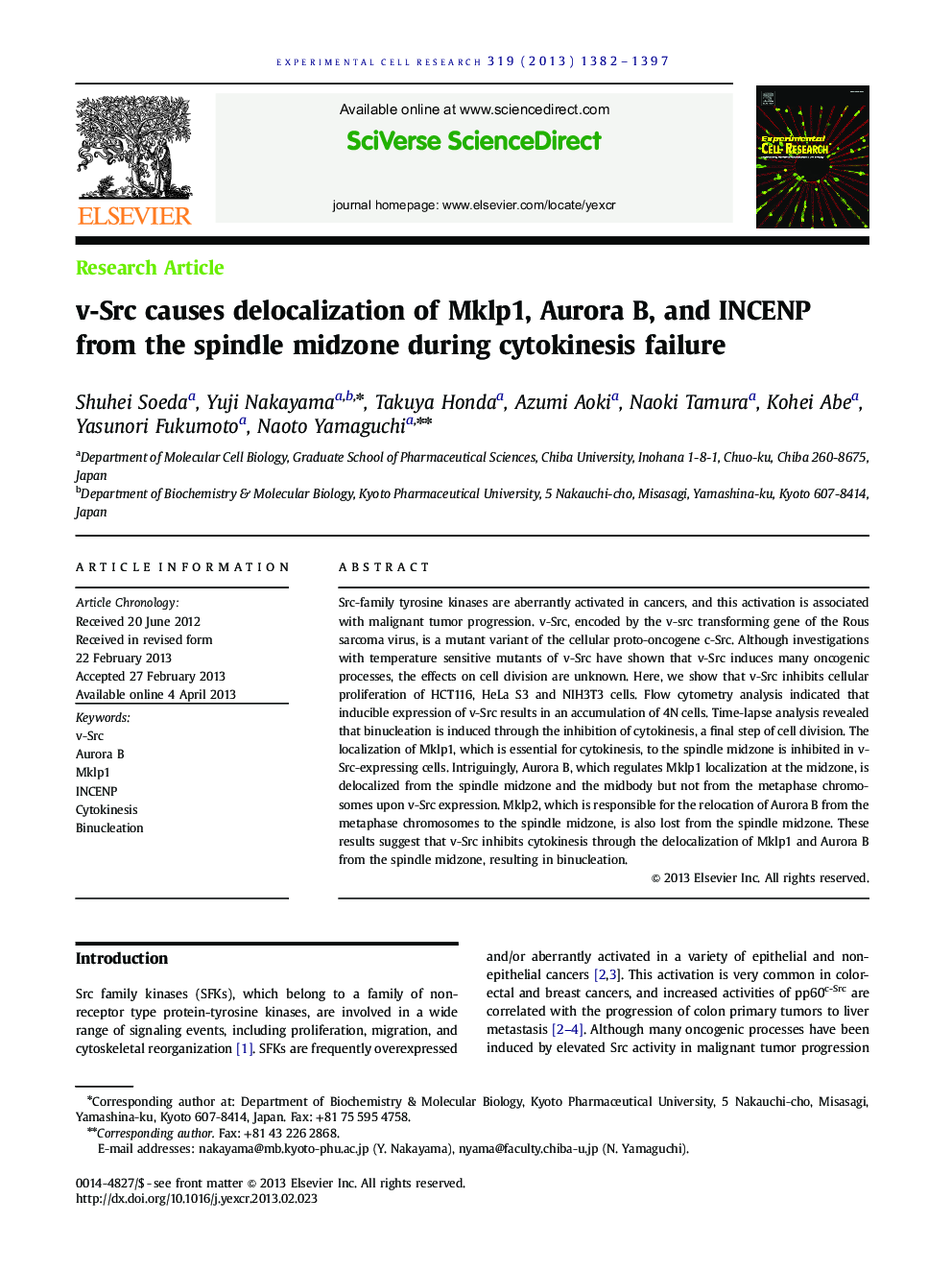| Article ID | Journal | Published Year | Pages | File Type |
|---|---|---|---|---|
| 2130438 | Experimental Cell Research | 2013 | 16 Pages |
•v-Src inhibits cell proliferation of HCT116, HeLa S3 and NIH3T3 cells.•v-Src induces binucleation together with cytokinesis failure.•v-Src causes delocalization of Mklp1, Aurora B and INCENP from the spindle midzone.
Src-family tyrosine kinases are aberrantly activated in cancers, and this activation is associated with malignant tumor progression. v-Src, encoded by the v-src transforming gene of the Rous sarcoma virus, is a mutant variant of the cellular proto-oncogene c-Src. Although investigations with temperature sensitive mutants of v-Src have shown that v-Src induces many oncogenic processes, the effects on cell division are unknown. Here, we show that v-Src inhibits cellular proliferation of HCT116, HeLa S3 and NIH3T3 cells. Flow cytometry analysis indicated that inducible expression of v-Src results in an accumulation of 4N cells. Time-lapse analysis revealed that binucleation is induced through the inhibition of cytokinesis, a final step of cell division. The localization of Mklp1, which is essential for cytokinesis, to the spindle midzone is inhibited in v-Src-expressing cells. Intriguingly, Aurora B, which regulates Mklp1 localization at the midzone, is delocalized from the spindle midzone and the midbody but not from the metaphase chromosomes upon v-Src expression. Mklp2, which is responsible for the relocation of Aurora B from the metaphase chromosomes to the spindle midzone, is also lost from the spindle midzone. These results suggest that v-Src inhibits cytokinesis through the delocalization of Mklp1 and Aurora B from the spindle midzone, resulting in binucleation.
